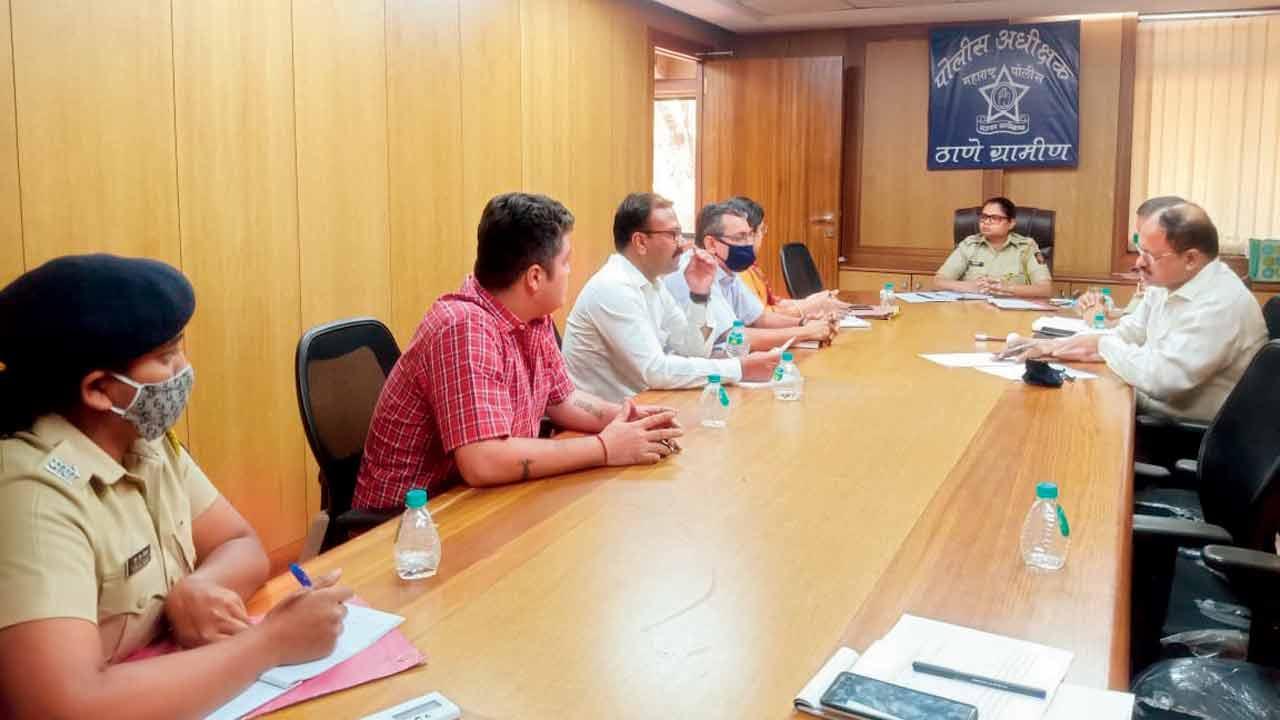Members, all other government departments, stakeholders decide to address issues of wildlife hunting, poaching

Members of the Thane District Tiger Cell at the meeting
The Thane District Tiger Cell met this month for the first time in six years. It was chaired by the Superintendent, Rural, Thane along with his officers and attended by officials from the Sanjay Gandhi National Park (SGNP) and Thane Territorial and Wildlife Wing.
ADVERTISEMENT
An agenda was set for the District Tiger Cell , which will be working with all other government departments and stake holders, to address the issues of wildlife hunting, poaching, organised crimes, human-wildlife conflict mitigation and policy making for better conservation efforts.
In every district, state
The Tiger Cell is constituted in every district and state for the protection and conservation of tigers and other top protected species. The Thane cell met for the first time in six years as there was no compulsion on regular meetings. However, the current members have decided to hold regular meetings. In the coming months more meetings will be planned to decide further course of actions and strategic planning. Talking to mid-day, Pawan Sharma, Honorary Wildlife Warden of the Thane District and President of NGO RAWW said, “I have shared some suggestions and inputs and am looking forward to many new developments, improvisations and joint efforts leading to better conservation practices.”
Points discussed
Procuring data of locations of human-wildlife conflicts from the Forest Department and initiating awareness and capacity building exercises and workshops with local police to mitigate them in future was also discussed in the meeting. The another important point that was discussed was to avoid display of live wild animals, birds, reptiles seized in various raids so that the creature is not in stress, trauma or subjected to injury.
“It was discussed that we should avoid disclosing the value/price of the animal, bird or reptile in press releases which can further attract new hunters, poachers and smugglers. Instead we should share scientific facts about species to create more awareness. To make provisions to inter link the data of offenders and accused persons which can help in strengthening intelligence and information of new, existing or repeat offenders. The same model can in future be implemented for better conservation efforts,” added Sharma.
The agenda for the meeting
>> Holding workshops for the police department by Forest Department and other stake holders like NGOs, NGIs, experts to capacity build while dealing with human-wildlife conflicts like role in rescue and anti-poaching activities, network building. Asking the police to implement Section 144 to avoid public gatherings in and around leopard rescues or any other risky wildlife rescue operation.
>> Creating an SOP to deal with live animal seizures, so that they immediately get medical aid and rehabilitation, so that seized animals like pangolins, boas, crocodiles, etc. go through less captivity stress.
 Subscribe today by clicking the link and stay updated with the latest news!" Click here!
Subscribe today by clicking the link and stay updated with the latest news!" Click here!






